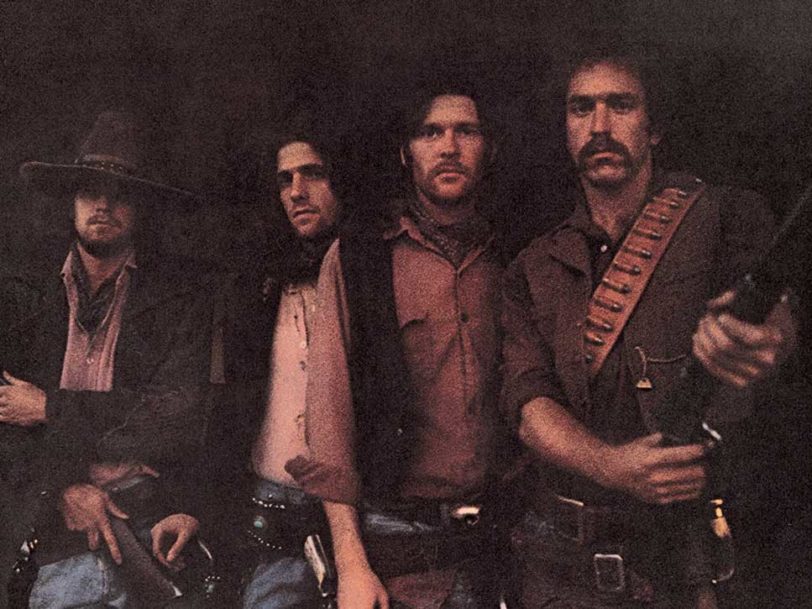Jackson Browne remembered that when he was living with Glenn Frey and JD Souther in a cheap apartment block in Echo Park, Los Angeles, in the early 70s, they would all leaf through a 50s coffee-table book called The Album Of Gunfighters, by J Marvin Hunter and Noah H Rose. The book contained photographs and stories about Wild West legends such as Jesse James, Billy The Kid and The Dalton Gang, a band of train robbers from the early 1890s. Frey said it inspired them to think of an album which “draws some parallels between rock’n’roll and being an outlaw”, and the result was Desperado, one of the best Eagles best albums, which was released on 17 April 1973.
Listen to Desperado here.
“We were taken with the idea of being outlaws”
One of the many idiosyncrasies about an album based on the myths of the Old West was that it was recorded during a cold February in London, at Island Records’ studio in Basing Street, Notting Hill, where the four main Eagles musicians (singer and guitarist Frey, drummer and singer Don Henley, guitarist and singer Bernie Leadon and bassist and singer Randy Meisner) were under the direction of producer Glyn Johns, who had also worked on the group’s 1972 eponymous debut album. The band stayed on the King’s Road, and with Johns and his family in Epsom, sometimes exploring the Surrey countryside in the producer’s expensive Lincoln Continental. “We all loved being in England,” said Leadon.
Desperado opens with Doolin-Dalton, co-written by Frey, Henley, Souther and Browne, which tells the story of how 23-year-old Bob Dalton met his bloody end during a gun fight in Coffeyville, Kansas, in 1892. Johns also inserted a 48-second instrumental version of Doolin-Dalton that featured Leaden’s deft banjo and mandolin playing. “We were quite taken with the idea of being, or at least portraying, outlaws,” Souther said, in 2014. “It was a serviceable metaphor for our story.”




